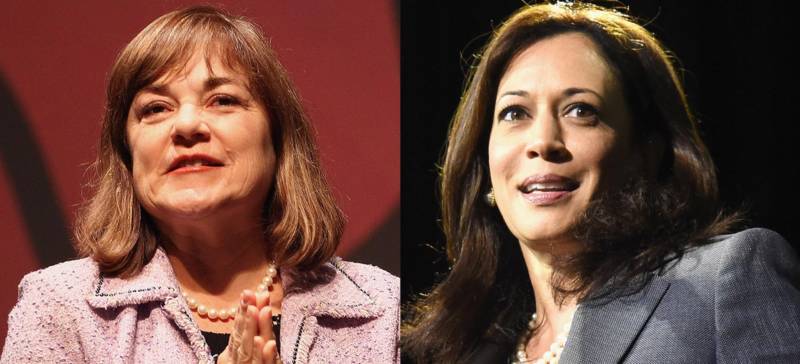Sanchez shot back, saying she did attend the hearings, adding that the chair of another committee that met at the same time was out sick so she had to fill in for him. Sanchez also criticized what she called an over-reliance on military solutions.
"Too many of my colleagues go to the toolbox that is called military," Sanchez said. "'Oh, the military will take care of that. Oh, the military will take care of that. Let’s just go to war here, oh, let’s just do a no-fly zone, let’s go there.' And the reality is there are other tools that we have."
Several times questioners had to stop Sanchez as she hit her time limit, although she mostly ignored the warnings and kept talking. For those who haven't seen Sanchez in action, Monday night's debate might have been an eye-opener. She has an authenticity many politicians lack in this age of canned speeches and talking points, but while it's endearing, it can also sound a bit unhinged.
When asked if she's the kind of political insider voters say they're tired of, Sanchez said "I'm not the status quo. Washington hasn't changed me. I've been changing Congress for 20 years."
Asked about her "shoot from the hip" style, Sanchez says it's just who she is.
"I come from the people," she said. "I want to be with the people. I fly home to California every week for 19 years."
Debate questioner John Diaz of the San Francisco Chronicle noted Sundheim's support for gay marriage and gun control and asked, "Why are you a Republican?"
Sundheim called himself a "proud Republican," but said if he wins, "I'm not going back there to work for (Senate Majority Leader) Mitch McConnell or a Republican president."
But in a state where Republicans are just 28 percent of the electorate, Del Beccaro doubled down on his conservative credentials. The East Bay attorney criticized gun control, hit Harris for supporting Planned Parenthood and used every opportunity to echo Ronald Reagan's claim that government is the problem, not the solution.
"If we’re going to resolve divisions, we must understand that the source of division most often is government, [it] has become at the center of it," Del Becarro said. "We can’t always turn to government, and we can’t always ask our neighbor to pay to solve our crisis."
Silicon Valley entrepreneur Ron Unz is the wild card in the race, as he proved again Monday night. He was the only Republican to support raising the minimum wage.
"I’m very glad that Gov. Brown signed the $15 minimum wage in California, though I think $15 is probably too high," Unz said. "It’s better than the $10 we had, but I would have supported $13 or $14."
The debate was sponsored by the San Francisco Chronicle, Sacramento's KCRA-TV and Stockton's University of the Pacific.
The five candidates are running to replace retiring Democratic Sen. Barbara Boxer. The top two finishers in the June 7 primary, regardless of their party, move on to the November general election.
The faceoff comes at a time when all the candidates are struggling for exposure, mostly losing out to media focused on the presidential election. Although the primary is just six weeks way, the most recent Field Poll found 48 percent of voters were undecided, meaning in part they just aren't paying close attention. This is especially true among Republicans, with 66 percent undecided compared with 32 percent of Democrats.
By comparison, the Field Poll in early May 1992, the last time California had a U.S. Senate election without an incumbent, just 15 percent of Democrats and 24 percent of Republican voters were undecided.
The only other debate with all these candidates is scheduled for May 10 in San Diego, a forum co-sponsored by KQED, KPBS (San Diego), KPCC (Los Angeles) and Capital Public Radio (Sacramento).

